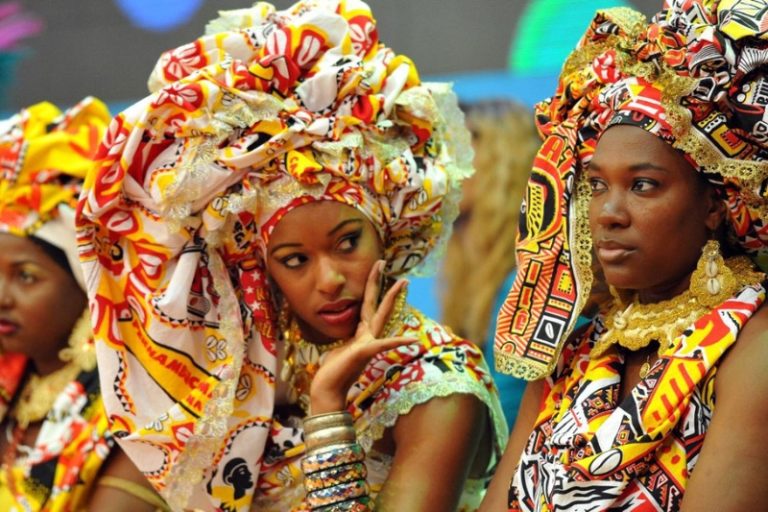

explore top 10 most educated tribes in nigeria in 2024
Numerous ethnic tribes with unique histories and customs may be found in Nigeria, a country renowned for its rich cultural variety. The socioeconomic landscape of the nation is greatly influenced by education, and some tribes have achieved notable advancements in educational attainment.
The top 10 most educated tribes in Nigeria in 2024 will be examined in this article, taking into account several variables like literacy rates, academic accomplishments, and access to educational opportunities.
The Igbo tribe, predominantly found in the southeastern region of Nigeria, has a long history of valuing education. With a high literacy rate and a strong emphasis on academic excellence, Igbo individuals have excelled in various fields, including medicine, law, engineering, and entrepreneurship. Many Igbo communities prioritize education and invest heavily in educational infrastructure.
The Yoruba tribe, located in the southwestern part of Nigeria, is renowned for its rich cultural heritage and educational achievements. Yoruba individuals have made significant contributions to literature, art, and academia. Institutions such as the University of Ibadan and Obafemi Awolowo University have produced notable Yoruba scholars and intellectuals.
The Hausa tribe, concentrated in the northern region of Nigeria, places great importance on Islamic education and traditional learning. While literacy rates may vary across different Hausa communities, efforts to improve access to formal education have led to increased educational attainment among Hausa individuals in recent years.
The Ijaw tribe, situated in the Niger Delta region, has shown a growing interest in education, particularly in areas related to oil and gas exploration. Despite facing socio-economic challenges, many Ijaw communities have established schools and educational programs to empower their youth and promote academic excellence.
The Edo tribe, known for its rich cultural heritage and historical significance, has produced many educated individuals who have excelled in various fields. Educational initiatives supported by the Edo State government and private organizations have contributed to improving literacy rates and educational outcomes among the Edo people.
The Itsekiri tribe, primarily located in the Niger Delta region, has a strong tradition of valuing education and intellectual pursuits. Educational institutions such as the Federal University of Petroleum Resources and Delta State University, both located in Itsekiri-dominated areas, have played a key role in advancing education within the tribe.
The Urhobo tribe, one of the largest ethnic groups in the Niger Delta region, has made significant strides in education in recent years. With the establishment of schools, colleges, and vocational training centers, Urhobo individuals have gained access to quality education and have achieved success in various professional fields.
The Efik tribe, based primarily in Cross River State, has a rich educational tradition dating back to pre-colonial times. Efik communities prioritize education, and efforts to improve access to schooling have resulted in higher literacy rates and educational attainment levels among the Efik people.
The Tiv tribe, located in the middle belt region of Nigeria, places a strong emphasis on education as a means of empowerment and socio-economic development. Despite facing challenges such as poverty and limited access to educational resources, many Tiv individuals have pursued higher education and professional careers.
The Fulani tribe, known for its nomadic lifestyle and pastoralist traditions, has shown a growing interest in formal education in recent years. Government-led initiatives and community-based programs have aimed to improve access to education among Fulani communities, leading to increased literacy rates and educational opportunities.
In conclusion, education is essential to determining Nigeria’s future, and certain tribes have made impressive strides toward higher levels of knowledge. The general growth and prosperity of Nigeria depends on initiatives to empower its different ethnic people and advance education, even in the face of persistent difficulties like poverty, insecurity, and inadequate infrastructure.
The Somali president supports their military forces to eliminate the threats from Al-Shabaab, ISIS, and Al-Qaeda. The Somali National Army…
UAE President Sheikh Mohamed bin Zayed Al Nahyan held talks with President Faustin Archange Touadéra of the Central African Republic…
African football teams struggle intensely in the World Cup Qualification rounds to earn their place on the international football stage.…
The journey toward the 2026 FIFA World Cup is rapidly intensifying for all African teams, who now hold a historical…
The cricket authority in Zimbabwe will organize matches between top international teams in a major cricket event expected to succeed…
In 2025 the South African Social Security Agency (SASSA) announced its designated dates for social grant payments that benefits millions…
This website uses cookies.